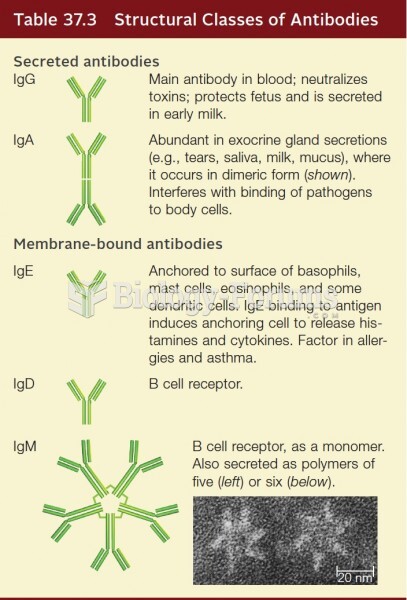|
|
|
Did you know?
Drug-induced pharmacodynamic effects manifested in older adults include drug-induced renal toxicity, which can be a major factor when these adults are experiencing other kidney problems.
Did you know?
About 100 new prescription or over-the-counter drugs come into the U.S. market every year.
Did you know?
If you could remove all of your skin, it would weigh up to 5 pounds.
Did you know?
Adult head lice are gray, about ? inch long, and often have a tiny dot on their backs. A female can lay between 50 and 150 eggs within the several weeks that she is alive. They feed on human blood.
Did you know?
By definition, when a medication is administered intravenously, its bioavailability is 100%.







